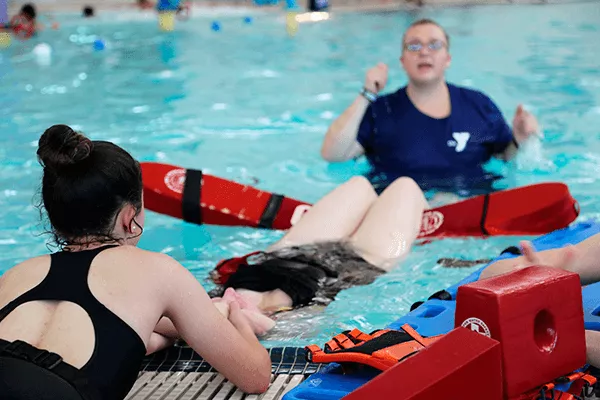Lifeguarding is more than just sitting by a pool in a red swimsuit. It’s a role that demands skill, vigilance, and fast decision-making. While lifeguard training programs teach the core competencies, there are insider techniques and practical insights that many instructors simply don’t cover—either due to time constraints or because they believe experience will teach you later.
In this article, we’ll uncover the real-life lifeguard training secrets that most instructors don’t tell you—but you absolutely need to know to become an effective, confident, and reliable lifeguard.
1. Memorizing Protocols Isn’t Enough—Situational Judgment Is Critical
What they teach: CPR, first aid, spinal injury protocols, and water rescues.
What they don’t tell you: Emergencies rarely look textbook-perfect.
Situational judgment is something that develops over time, but new lifeguards can benefit greatly by studying past rescue scenarios and learning to read unusual body language, potential signs of panic, or even subtle drowning behaviors like the “instinctive drowning response,” which is often silent.
🟢 Tip: Practice mentally walking through multiple “what-if” scenarios. Ask yourself: What if a child collapses near the deep end? What if two people are in distress at once?
2. Scanning Fatigue Happens Faster Than You Think
What they teach: You must scan the pool every 10 seconds and reach a victim within 30 seconds.
What they don’t tell you: After about 20 minutes, your attention drops—significantly.
This is known as vigilance decrement—the decline in attention over time. It’s a real, studied phenomenon. Many new guards aren’t trained on how to stay alert for hours.
🟢 Tip: Rotate stations every 20–30 minutes. Use scanning patterns like the 10:20 system (10-second scan, 20-second response) and include micro-breaks when possible.
3. Not All Drowning Victims Look Like They’re in Trouble
What they teach: Drowning victims may call for help or flail around.
What they don’t tell you: Many drown silently and still—especially children.
The reality is, drowning is often a quiet, passive event. Victims may remain vertical, barely moving, with a blank stare or eyes below the waterline.
🟢 Tip: Don’t rely on noise or drama. Train your eyes to detect subtle movements and changes in posture. Always watch the “quiet ones.”
4. Your Whistle and Voice Are Powerful Tools—Use Them Well
What they teach: Blowing the whistle to signal breaks or emergencies.
What they don’t tell you: Your voice and body language are just as important.
A sharp whistle paired with assertive, clear vocal instructions can prevent many issues before they escalate. Lifeguards who hesitate to speak up may struggle to maintain safety and control.
🟢 Tip: Practice assertive, calm commands. Stand with confidence, maintain eye contact, and don’t be afraid to instruct firmly when needed.
5. Peer Pressure Among Swimmers Is Real—and Dangerous
What they teach: Watch for unsafe behavior like diving in the shallow end.
What they don’t tell you: Peer influence, especially among teens, can escalate risk fast.
Group dynamics often lead to risky behaviors—competitive swimming, horseplay, or dares. Being aware of social patterns can help you predict and prevent incidents.
🟢 Tip: Monitor group behavior, not just individuals. Anticipate actions, not just reactions.
6. Confidence Trumps Strength in Real Rescues
What they teach: Proper rescue strokes and equipment use.
What they don’t tell you: Being calm and confident will often save the day more than brute strength.
Even a physically strong lifeguard can struggle if they panic. Victims can sense fear, and that can make rescues harder.
🟢 Tip: Focus on mental rehearsals and stress management. Breathing techniques and visualization improve response under pressure.
7. Communication With Team Members Can Make or Break a Rescue
What they teach: Team response protocols.
What they don’t tell you: In real-time, communication may need to be fast, non-verbal, and improvised.
A glance, a hand signal, or a one-word shout can synchronize a response. When every second counts, fluid teamwork is vital.
🟢 Tip: Develop clear communication cues with your team. Practice joint drills under timed conditions.
8. Documentation and Reporting Are as Important as the Rescue
What they teach: Complete reports after incidents.
What they don’t tell you: Poor documentation can put your job—and even the facility—at legal risk.
Every detail matters. If an incident leads to an injury or legal dispute, your report becomes evidence. Always document objectively, even for minor issues.
🟢 Tip: Include time, witnesses, actions taken, and specific quotes if relevant. Avoid opinions—stick to facts.
9. You’re Always Being Watched—Professionalism Matters
What they teach: Follow the code of conduct.
What they don’t tell you: Swimmers and supervisors are constantly observing your behavior.
Whether it’s how you sit, check your phone (or avoid it), or engage with patrons—your actions shape your reputation and trust level.
🟢 Tip: Stay alert, maintain proper posture, and limit distractions. Your body language speaks volumes even when you’re silent.
10. The Best Lifeguards Never Stop Learning
What they teach: Once you’re certified, you’re qualified.
What they don’t tell you: Certification is just the beginning.
Lifeguarding is dynamic—new rescue tools, techniques, and case studies emerge regularly. Ongoing learning sharpens your skillset and can even save a life.
🟢 Tip: Seek out workshops, watch real rescue videos, and stay updated on aquatic safety trends. Ask veteran guards for advice—they’re a goldmine of knowledge.
Final Thoughts
Lifeguard training lays the foundation, but the real mastery comes from understanding the human side of emergencies, developing situational awareness, and learning what isn’t printed in your training manual.
By applying these hidden insights, you’ll not only perform better in rescues—you’ll become the kind of lifeguard others look up to, trust, and rely on when it truly matters.


